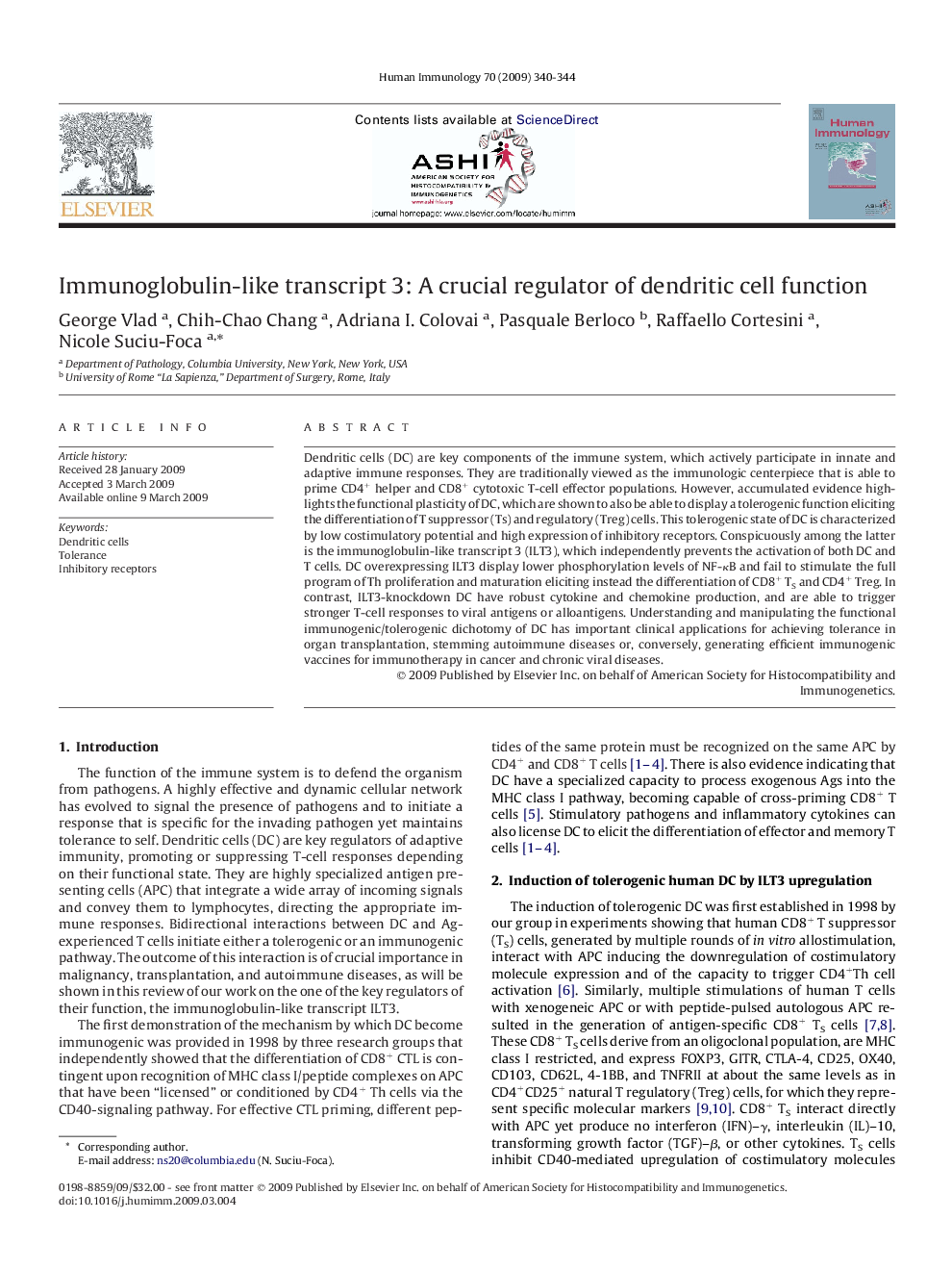| Article ID | Journal | Published Year | Pages | File Type |
|---|---|---|---|---|
| 3351689 | Human Immunology | 2009 | 5 Pages |
Dendritic cells (DC) are key components of the immune system, which actively participate in innate and adaptive immune responses. They are traditionally viewed as the immunologic centerpiece that is able to prime CD4+ helper and CD8+ cytotoxic T-cell effector populations. However, accumulated evidence highlights the functional plasticity of DC, which are shown to also be able to display a tolerogenic function eliciting the differentiation of T suppressor (Ts) and regulatory (Treg) cells. This tolerogenic state of DC is characterized by low costimulatory potential and high expression of inhibitory receptors. Conspicuously among the latter is the immunoglobulin-like transcript 3 (ILT3), which independently prevents the activation of both DC and T cells. DC overexpressing ILT3 display lower phosphorylation levels of NF-κB and fail to stimulate the full program of Th proliferation and maturation eliciting instead the differentiation of CD8+ TS and CD4+ Treg. In contrast, ILT3-knockdown DC have robust cytokine and chemokine production, and are able to trigger stronger T-cell responses to viral antigens or alloantigens. Understanding and manipulating the functional immunogenic/tolerogenic dichotomy of DC has important clinical applications for achieving tolerance in organ transplantation, stemming autoimmune diseases or, conversely, generating efficient immunogenic vaccines for immunotherapy in cancer and chronic viral diseases.
